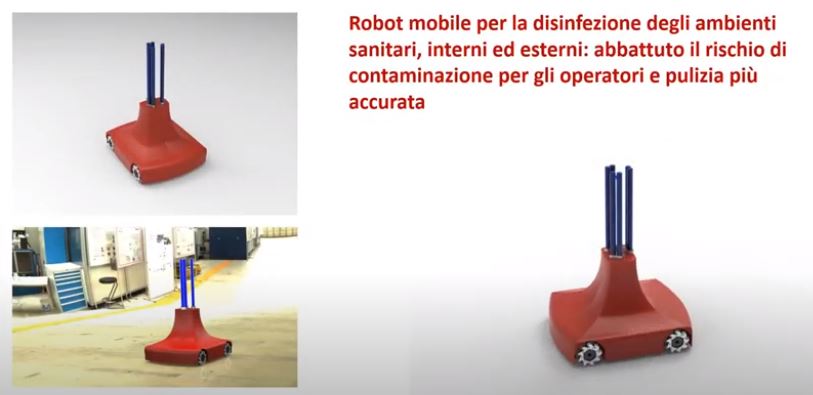A mobile robot for the disinfection of environments, capable of sterilizing even outdoor non-healthy environments.
This is the project of Robotica REstart, which aims to realize these robots and test them in Pisa, at the Fondazione Monasterio and at the Azienda Ospedaliero-Universitaria Pisana.
The robot to sanitize environments is one of the many innovative solutions put in place by developers, research institutions and also makers, to combat the negative effects of the spread of coronavirus epidemic.
While many sectors have suffered major losses since the spread of the COVID-19 emergency, others have enjoyed unexpected development.
Robotics is one of these sectors: already during the crisis in China, in addition to systems for tracking potentially infected people, we had seen robotic applications related to the disinfection of neighborhoods and lanes in hospitals; other robots, however, were used for video surveillance, to deliver medicines or prepare meals for patients or health personnel.
The robot for disinfection of environments can reduce the risk of infection
The objective of Robotica REstart is in fact to experiment with machines able to reduce the risk of contagion for healthcare workers working in hospitals.
The robot will be able to move independently or remotely guided and is the result of the application of existing technologies related to inspection systems, adapted to new needs.

Operators will thus be able to remote control the instrument without necessarily having to be on site, in order to minimise the risk of infection by avoiding direct contact with potentially infected and contaminated environments.
In addition to the artificial vision sensors, it will also be equipped with UV-C lamps or spray dispensers of disinfectant solutions.
The project will be carried out under the scientific supervision of Antonio Frisoli, professor of robotics at the Laboratorio di Robotica Percettiva of the Istituto TeCIP (Tecnologie della Comunicazione, Informazione, Percezione) della Scuola Superiore Sant’Anna.
The start of the experimentation is scheduled for September 2020.
“This is an important experience of collaboration between business and public universities, to be replicated. We have developed an immediately applicable research project in synergy, we have collected all private resources through fundraising and we are going to offer the community a tool that can be used immediately in healthcare facilities. This is the third mission of the university, beyond training and research. Very short times, excellent response from the entrepreneurial fabric, high social impacts: these are the lines along which we want to move as a university,” said Sabina Nuti, rector of the Scuola Superiore Sant’Anna in Pisa.